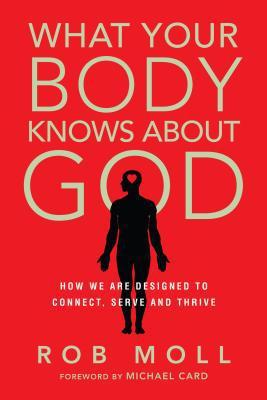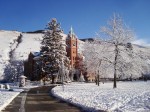We talk a lot about science here; how about a chance to do some science? If you have a real Christmas tree in your house, keep track of how much water you are putting into the stand. Then set out an equivalent volume of water in a bowl or cup or whatever. Making some allowance for initial replenishment of dehydration, all of the water you are putting into the tree stand is evaporating into the air. If it weren't, the tree would be getting bigger. The water in the bowl is evaporating also, but most likely you'll observe … [Read more...] about Science Corner: H2O Christmas Tree
design
Book Review: What Your Body Knows About God, by Rob Moll
What Your Body Knows About God: How We Are Designed to Connect, Serve and Thrive. Rob Moll. Downers Grove, IL: InterVarsity Press, 2014. Summary: Explores how our neurophysiology enables us to connect to God and others and how spiritual practices, liturgies, and opportunities to serve enable us to physically as well as spiritually thrive. … [Read more...] about Book Review: What Your Body Knows About God, by Rob Moll
Science Corner: I’ll Be in Scotland Afore Ye
In a lovely bit of metaconvergence, two studies on convergent evolution showed up in the news this week. The first looked at ants in Arizona and whether five distinct populations separately stopped producing queens with wings in favor of wingless ones. The second was more extensive, showing that a wide range of species across phyla all have the same solution at the genetic level for coping with a toxin produced by some plants and toads. Both studies suggest that natural history was not purely random, and "replaying the … [Read more...] about Science Corner: I’ll Be in Scotland Afore Ye
Becoming a Thoughtful Christian in the Secular Academy: Part II
Last week I wrote about my journey as a developing follower of Jesus in a secular university. I told you that I'd become a stronger Christian during my time in the academic world, and now I want to tell you a little bit about what happened in my mind and heart during that time. This post is, to an extent, a response to Andy Walsh's question in the comment thread of last week's post in this series: You mentioned that your Christian faith is stronger as a result of the experience. Did you find that aspects of your … [Read more...] about Becoming a Thoughtful Christian in the Secular Academy: Part II



